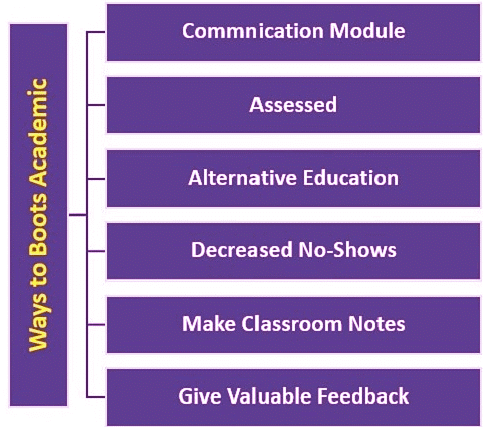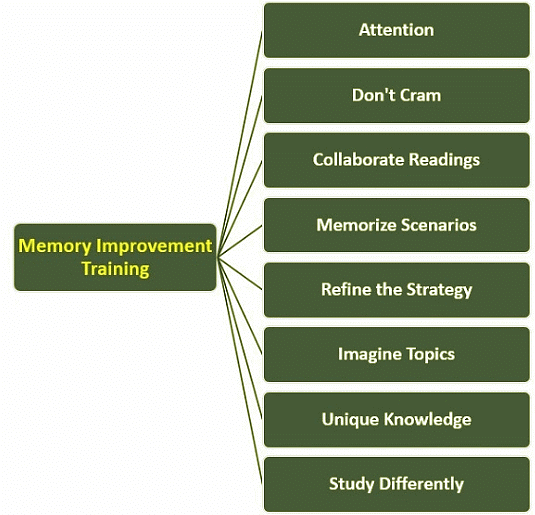Training for Improving Memory and Better Academic Achievement | Psychology for UPSC Optional (Notes) PDF Download
Introduction
Is it possible to unleash the untapped potential of our memory? It's not uncommon to feel frustrated when our memory lets us down, be it forgetting where we placed our keys or facing challenges while studying for exams. The good news is that there are various strategies that can be employed to boost memory and enhance academic achievements. This article delves into effective techniques for training our brains and attaining improved educational outcomes.
Enhancing Academic Achievement: Key Strategies
- Communication Module: Clear communication plays a pivotal role in improving students' grades. It is essential to inform students of their goals and plans, ensuring they are engaged in their studies. Additionally, parents should be kept informed about school activities and progress. Implementing a communication module can facilitate seamless interaction between parents, teachers, and other stakeholders. By fostering effective communication channels, both within and outside the classroom, students can access support and guidance whenever needed.
- Student Assessment: Tracking student progress is vital to assess academic achievement. Performance reports provided by tools like Teach mint can assist administrators in identifying areas that need improvement. Additionally, accurate attendance records enable teachers to identify and address student absenteeism promptly. By collaborating with teachers and using student choice as a method, administrators can create an environment that caters to individual needs and fosters academic growth.
- Alternative Education: Effective teaching methods adapt to students' progress and incorporate real-world applications. Through school administration dashboards, teachers can monitor student progress, assess their approaches, and modify instructional strategies accordingly. Real-time data helps teachers understand and meet their students' needs, creating a conducive environment for academic success. By minimizing unnecessary tasks, students gain more time to focus on their education holistically.
- Decreased No-Shows: Chronic absenteeism poses significant challenges to the educational system. By implementing automated attendance systems, educators can easily track student absences and promptly notify parents. This streamlined process reduces administrative workload, enabling teachers to prioritize student success. Real-time attendance data allows teachers to monitor student attendance effectively and take proactive measures to improve academic achievement.
- Classroom Notes and Assessments: Exams and projects serve as valuable tools for evaluating students' learning progress. However, preparing exams and distributing notes can be time-consuming for teachers. By leveraging automated technologies, teachers can efficiently design exams, saving preparation time and ensuring standardized assessment practices. Moreover, teachers can access external resources to enrich classroom materials, enhancing students' learning experience.
- Give Valuable Feedback to Students: Student data systems provide timely assessments that help students gauge their academic standing and identify areas for improvement. Classroom activities and test results contribute to a comprehensive performance evaluation. Through continuous feedback, students gain valuable insights into their learning journey and can make informed decisions to enhance their academic performance.

Memory Enhancement Techniques for Effective Learning
Memory is a skill that can be trained and improved. Employing specific techniques and mnemonic devices can aid in retaining information effectively. Here are some memory enhancement techniques learners can utilize:
- Cognitive Hooks: Utilize imagery and association to create strong memory anchors. Visualize familiar environments, sequences, or personal experiences to aid in recall.
- Attention and Focus: Create an optimal learning environment by studying in a quiet place without distractions. Short-term memory is crucial for transferring information to long-term memory.
- Study Habits: Avoid cramming and adopt consistent study sessions. Spacing out learning sessions allows for better retention and comprehension of material.
- Collaborative Learning: Organize study sessions that encourage students to connect and discuss course material. Engaging with peers promotes a deeper understanding of topics and facilitates memory consolidation.
- Mnemonics: Utilize mnemonic devices to enhance memory retention. Associating new information with familiar concepts, creating vivid comparisons, and developing creative scenarios can significantly improve recall.
- Elaborative Rehearsal: Employ the technique of elaborative rehearsal by actively engaging with the material. Read, reflect, and review core concepts multiple times, strengthening the encoding process.
- Visualization: Visual aids, such as graphs, charts, and diagrams, assist in understanding and recalling information. If visual resources are not readily available, students can create their own visuals to reinforce learning.
- Connection and Context: Relate new information to existing knowledge and personal experiences. Establishing connections enhances comprehension and retention of new concepts.
- Varied Study Approach: Altering study habits and environments can improve memory recall. Exploring different study locations and reviewing material at regular intervals enhances long-term retention.
Conclusion
Enhancing memory is essential for academic success and overall personal growth. By implementing effective communication strategies, utilizing assessment tools, and embracing alternative education methods, schools can create an environment that fosters optimal learning experiences. Furthermore, employing memory enhancement techniques empowers students to unlock their full potential. By incorporating these strategies, both educators and learners can strive for excellence and achieve better academic outcomes. Remember, success starts with an investment in memory.
|
160 videos|215 docs
|















